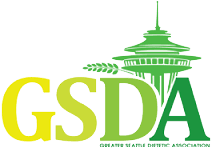National Food Safety Education Month
National Food Safety Education Month Follow Up

September was National Food Safety Education Month—did you do anything special to remind your clients?
This fall and throughout the year, teach your patients and clients ways to reduce the risk of food poisoning and keep themselves safe. One of the first steps to food safety is proper handwashing. Handwashing has the power to limit the spread of viruses and germs.
Washing your food correctly is also important. Many people believe all foods have to be washed, but that’s not the case! There are some foods that should not be washed, including raw meat, fish, poultry and eggs.
As we head into the winter season, will you be feeding a crowd? Don’t forget food safety is important for buffets, too! If you know you know you have more food on hand than you’ll go through, consider freezing perishable foods so they last longer.
When reheating leftovers, remind patients and clients to prepare meals by cooking foods to the proper internal temperature and to keep track of how long foods are stored in the refrigerator. Most leftovers should be used or frozen within three to four days. And after opening canned, dried and pre-packaged food items, it’s important to know their shelf life, too.
Adapted from Academy of Nutrition and Dietetics Social Media Toolkit 2024 by Amy Riggs.
